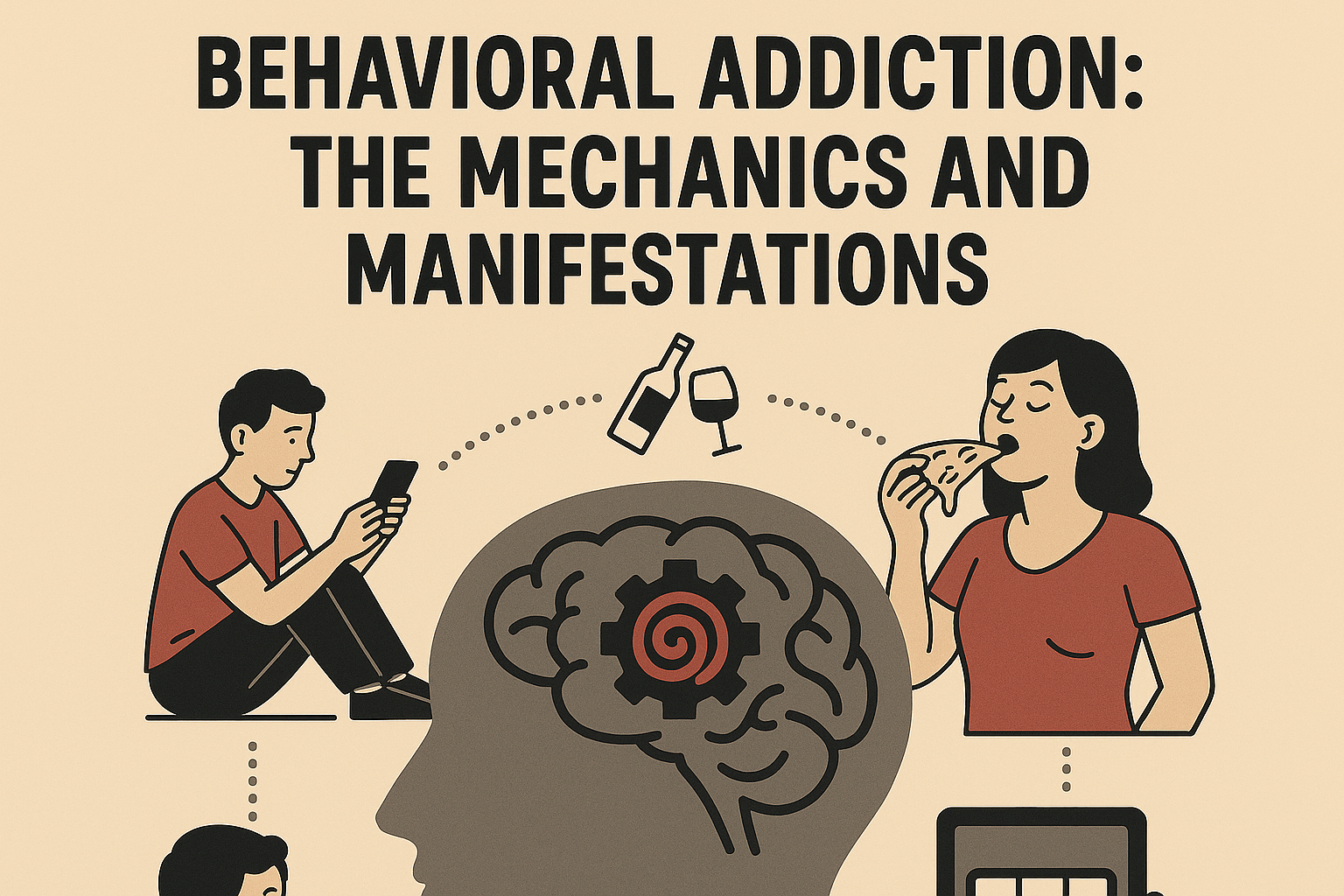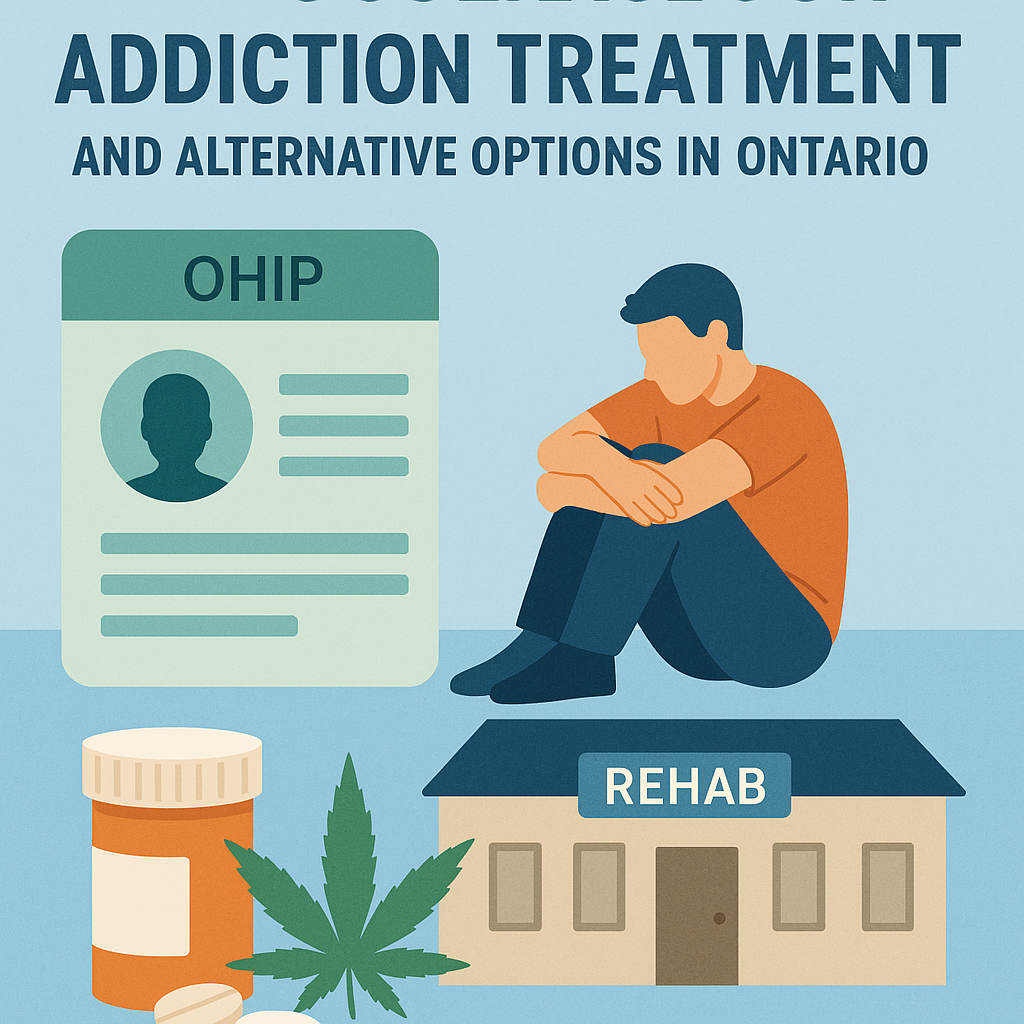
Alcohol detoxification, also referred to as alcohol detox, is a step forward in overcoming alcohol dependency. However, answering ‘how long does alcohol detox take?’ is not as simple as it looks. So, what is the alcohol withdrawal timeline then?
Let’s dig in deep.
What is Alcohol Detox?
The alcohol detox process or alcohol withdrawal refers to a series of changes in an individual’s body that are experienced when he/she prohibit their drinking habit.
The person is more likely to experience mild to severe symptoms, depending on different factors (discussed below), that are being managed by medical professionals with care and safety—ensuring to ease the individual’s initial phase of sobriety.
Reasons to Take Alcohol Withdrawal?
When a person makes alcohol consumption a regular habit with a significant amount, substance dependency occurs.
When suddenly it stops, the body, brain, and neurotransmitters experience a shock as the consumption deeply suppresses them. In order to function correctly, the brain’s neurotransmitters re-adjust to gain the required sensitivity to function properly.
Alcohol Detox Symptoms Timeline
alcohol detox symptoms timeline
alcohol withdrawal symptoms
Delirium tremens (DTs)
Delirium tremens, DT, also known as alcohol withdrawal delirium, is one of the extreme symptoms that a person can experience after quitting alcohol consumption. Medically, it is assumed to be fatal, ranging from 5 to 15 percent.
DT is marked to influence the level of consciousness. People with a heavy habit of alcohol, poor liver functioning, or facing severe verge of withdrawal symptoms may experience delirium tremens.
Post-Acute Withdrawal Syndrome (PAWS)
Even after the initial detox phase, some individuals may experience prolonged withdrawal symptoms, known as Post-Acute Withdrawal Syndrome. This phase can last for weeks or months.
The common symptoms of post-acute withdrawal syndrome (PAWS) include
- Sleep Disturbances: Insomnia or disrupted sleep patterns.
- Fatigue: Persistent tiredness despite adequate rest.
- Cravings: Strong urges to consume alcohol again.
- Anhedonia: Difficulty experiencing pleasure from normally enjoyable activities.
Symptoms During Alcohol Withdrawal
Once the person begins to resist their drinking habit, they are expected to experience different symptoms, especially if that individual was a heavy drinker.
They are more likely to feel
- Rapid heart rate
- Seizures
- Delirium tremens
- Fatigue
- Mood swings
- Irritability
- Sweating
- Anxiety and stress
- Hand tremors
- Vomiting or nausea
- Hallucinations
What is Alcohol Withdrawal Seizures?
Alcohol withdrawal seizures are a serious and potentially life-threatening complication that can occur when someone who is dependent on alcohol suddenly stops drinking or significantly reduces their intake.
These are generalized tonic-clonic (grand mal) seizures that typically happen within 6 to 48 hours after the last drink in someone with a history of chronic, heavy alcohol use.
Unlike other seizure types, they are not usually associated with epilepsy and are directly caused by sudden changes in brain activity after alcohol is withdrawn.
Why Do They Happen?
Chronic alcohol consumption affects the brain’s neurotransmitters, especially:
- GABA (gamma-aminobutyric acid): Alcohol increases GABA activity, which calms the brain.
- Glutamate: Alcohol suppresses glutamate, which stimulates brain activity.
Over time, the brain adjusts by reducing GABA and increasing glutamate. When alcohol is suddenly removed:
- There is too little GABA (not enough calming)
- And too much glutamate (too much stimulation)
This leads to brain hyperexcitability, which can cause seizures.
Symptoms of Alcohol Withdrawal Seizures
- Sudden loss of consciousness
- Muscle rigidity followed by rhythmic jerking (tonic-clonic movement)
- Tongue biting
- Incontinence
- Post-seizure confusion, fatigue, or sleepiness (post-ictal state)
They typically occur in clusters (more than one seizure within a few hours), and usually do not involve warning signs or auras like epileptic seizures might.
How Are They Treated?
The treatment for Alcohol withdrawal seizures is best treated through
- Immediate Medical Care
- Ensure safety (prevent falls, head injury)
- Transport to the hospital or emergency department
- Medication
- Benzodiazepines (e.g., diazepam, lorazepam): First-line treatment to stop and prevent seizures
- Thiamine (Vitamin B1): To prevent Wernicke’s encephalopathy, especially before giving glucose
- IV fluids and electrolytes: To stabilize the patient
- Monitoring
- Continuous observation in a medical setting
- Check for complications or progression to DTs
What is the Alcohol Withdrawal Timeline for Symptoms?
People who have alcohol use disorder (AUD) or heavy drinking habits, joining an alcohol detox program, are more likely to experience withdrawal symptoms.
As per the findings of AAC: American Addiction Centers, the alcohol detox timeline begins with the initial withdrawal symptom, starting at 8 hours.
The individual is more likely to expect withdrawal symptoms during the timeline, which is as follows.
- The initial and most basic symptom of alcohol withdrawal begins after 8 hours of consumption.
- The symptoms are generally at their peak after 24 to 72 hours.
- After five days to a week, the intensity of alcohol detox symptoms begins to decrease.
- Usually, the side effects of detox are specifically psychological during the first week, which are likely to continue till the end.
However, the alcohol detox duration varies from person to person, based on multiple factors.
Alcohol Withdrawal Timeline Stages
As said, the alcohol withdrawal timeline stages vary from person to person, based on different factors that are likely to influence the progress.
One of the core reasons is the manner of alcohol consumption, like how heavily it is used and how frequently it is consumed.
Speaking of it, they are primarily broken down into three primary stages,
- Early Withdrawal
- Acute Withdrawal
- Late Withdrawal
The Early Withdrawal
This is the initial stage of alcohol detox that sets in rapidly after cessation. The duration of this stage is six to twelve hours right after the last drink taken.
People in this stage will experience anxiety, headache, nausea, vomiting, mild tremors, and insomnia.
The Acute Withdrawal
This is the second among the withdrawal stages that starts after twenty-four to seventy-two hours, and it is usually the most dangerous and intense phase that may require hospitalization.
During this stage, the patient will experience an elevated heart rate, fever, hallucinations, high blood pressure, and possible seizures.
The Late Withdrawal
This phase takes place after three to seven days.
During this alcohol withdrawal stage, the physical symptoms taper off; however, the psychological symptoms like sleep disturbance, strong cravings, irritability, and fatigue may linger.
How Long Does Alcohol Detox Take?
The alcohol detox timeline varies, i.e., it basically depends on the individual’s alcohol consumption, how quickly and frequently he is taking it.
However, there is no one-size-fits-all answer to how long alcohol detox takes, but a general timeline can be predicted based on the severity of alcohol dependency.
- Mild Alcohol Use Disorder: 3 to 5 days
- Moderate Alcohol Use Disorder: 5 to 7 days
- Severe Alcohol Use Disorder: 7 to 14 days or longer, mainly if complications like delirium tremens occur.
Note: In order to minimize alcohol detox risks, medically supervised detox is recommended as it can help reduce the severity and potentially shorten the duration of withdrawal symptoms.
Factors Influencing the Alcohol Detox Timeline
Several factors influence the alcohol detox program, safety, and success. The process of clearing alcohol from the body and managing withdrawal symptoms.
These factors help determine how severe withdrawal symptoms might be and what level of medical supervision is needed.
1. Level and Duration of Alcohol Use
- Chronic and heavy use: Long-term alcohol consumption increases physical dependence and the risk of severe withdrawal symptoms.
- Amount of alcohol consumed: Higher daily intake leads to more intense withdrawal.
- Type of alcohol: Spirits with high alcohol content may have more substantial physiological effects than beer or wine.
2. Duration of Dependence
- The longer someone has been drinking regularly, the more likely the brain and body have adapted to alcohol, making withdrawal more dangerous and complex.
3. Genetic and Biological Factors
- Genetics can influence how the body metabolizes alcohol and responds to withdrawal.
- Sex: Women often experience the faster onset of liver damage and other alcohol-related conditions, even with lower consumption.
- Age: Older individuals may detox more slowly and are at greater risk of complications.
4. Mental Health Status
- Co-occurring disorders like depression, anxiety, PTSD, or bipolar disorder can worsen withdrawal symptoms.
- Alcohol may have been used to self-medicate, and removing it may unmask underlying psychiatric conditions.
5. Physical Health and Medical History
- Liver disease (e.g., cirrhosis), heart conditions, or nutritional deficiencies (like low thiamine) can affect how the body handles detox.
- Individuals with a history of seizures, delirium tremens (DTs), or other withdrawal complications are at higher risk during detox.
6. Use of Other Substances
- Concurrent use of drugs like benzodiazepines, opioids, stimulants, or marijuana can complicate detox and may require special management strategies.
- Polysubstance abuse increases the risk of unpredictable or more severe withdrawal symptoms.
7. Previous Withdrawal Episodes
- Kindling effect: Each episode of withdrawal can worsen the next one, leading to increasingly severe symptoms over time (including seizures and DTs).
8. Nutritional Status
- Chronic alcohol use often leads to malnutrition, especially deficiencies in:
- Thiamine (Vitamin B1)
- Folate
- Magnesium
- Potassium
- These deficiencies can worsen neurological and cardiovascular symptoms during detox.
9. Environment and Support System
- A stressful or unsupportive environment can make detox emotionally and psychologically harder.
- Lack of supervision increases risk of relapse or medical complications.
- Access to medical and psychological support improves outcomes.
10. Detox Setting and Type
- Inpatient alcohol detox is recommended for high-risk individuals (history of seizures, DTs, co-occurring illnesses).
- Outpatient alcohol detox is suitable for mild to moderate cases with strong support systems.
- Home detox without medical oversight is dangerous, especially for those with moderate to severe alcohol dependence.
11. Time Since Last Drink
- Withdrawal symptoms typically start 6–24 hours after the last drink.
- The body’s response can be influenced by how recently alcohol was consumed and how frequently it has been cleared from the system.
How Long Does Alcohol Stay in the System?
When it comes to seeking the answer for how long does alcohol stay in body, the truth is, it depends. The factors that determine its longevity in the body include the person’s age, sex, alcohol consumption, and how quickly they drink it.
There are a few tests that help to check if your body has alcohol.
Tests to Detect Alcohol in the Body
Although the presence of alcohol in saliva and sweat is temporary, it can be detected through different tests, mainly through
- Urine Test: A urine test can detect the presence of alcohol in the body within 12 to 24 hours after alcohol consumption.
- Breath Test: The next test is a breath test, which takes place using a breathalyzer. It can also detect within a 12- to 24-hour time frame by measuring Blood Alcohol Concentration.
Other than that, believe it or not, alcohol can also be detected through hair up to 90 days, but its timeline for blood is also up to 24 hours.
How Professionals and Rehabilitation Centers Can Help in the Alcohol Detoxification Process?
The alcohol detoxification process could be challenging for an individual emotionally, mentally, and physically, which can be challenging to treat at home.
Here, the first step is to identify the alcohol withdrawal symptoms and seek medical attention as soon as possible. In the case of severe symptoms, like delirium tremens, the life of that individual could be at risk.
Hence, in order to ensure the safety of the individual from alcohol abuse, it is essential to seek remedial attention through professional treatments in the medical center.
There, the professional medical workers will assist you with the most suitable alcohol detox program. However, keep in mind that sobriety could be a little tough, and you have to struggle
Are There Any Alcohol Detox Side Effects?
The person during alcohol withdrawal could surely experience symptoms. The alcohol detox side effects mainly include
- Physical Side Effects
- Psychological Side Effects
Physical Side Effects
During alcohol detox, individuals may experience a range of physical symptoms, including
- Sweating: Excessive perspiration as the body attempts to regulate temperature.
- Nausea and Vomiting: Common gastrointestinal responses to the absence of alcohol.
- Headaches: Resulting from dehydration and changes in blood pressure.
- Increased Heart Rate: The autonomic nervous system reacts to the sudden lack of alcohol.
- Seizures: In severe cases, particularly in individuals with a history of heavy drinking, seizures can occur within 24 to 48 hours after the last drink.
Psychological Side Effects
The psychological impact of alcohol detox can be profound, with symptoms such as:
- Anxiety and Depression: Mood disturbances are common as the brain adjusts to the absence of alcohol.
- Irritability and Mood Swings: Emotional instability can occur during the withdrawal period.
- Hallucinations: Some individuals may experience visual or auditory hallucinations, typically within 12 to 24 hours after cessation.
Suggested Treatments for Alcohol Detox
Alcohol detox treatment could be dangerous if initiated alone. The treatment for alcohol withdrawal symptoms is best treated in a detox program with the help of medical professionals.
Alcohol detox support can be sought in rehab centers. In order to eliminate alcohol from the body, it is necessary to ensure alcohol withdrawal management for the symptoms.
These treatments are specifically designed to minimize the discomfort, prevent complications, and support long-term sobriety.
The best recommended alcohol detox treatments are
1.Medical Supervision
Medical management is often necessary, especially for individuals with moderate to severe alcohol dependence.
- 🧑⚕️ 24/7 monitoring in inpatient settings
- 📈 Regular checks of vital signs, hydration, and mental status
- 🛌 Admission to ICU for severe cases (e.g., delirium tremens, seizures)
2. Medications
Several medications are used to ease withdrawal symptoms and prevent complications.
Benzodiazepines (first-line treatment)
- Common: Diazepam (Valium), Lorazepam (Ativan), Chlordiazepoxide (Librium)
- Reduces: Anxiety, tremors, agitation, seizures, delirium tremens (DTs)
Anticonvulsants
- Common: Carbamazepine, Gabapentin
- Helps: Prevent seizures and stabilizes mood
Antipsychotics
- Used cautiously in severe agitation or hallucinations
- Common: Haloperidol
Beta-blockers / Clonidine
- Controls: High blood pressure, rapid heartbeat, anxiety
Nutritional Supplements
- Thiamine (Vitamin B1): Prevents Wernicke’s encephalopathy
- Folic acid, magnesium, multivitamins: Replenish deficiencies common in chronic alcohol use
3. IV Fluids and Electrolyte Replacement
Dehydration and electrolyte imbalances are common during alcohol detox.
- Intravenous fluids to maintain hydration
- Electrolytes like potassium, magnesium, and sodium to prevent cardiac and neurological complications
4. Psychological Support
Even during detox, emotional and psychological support is crucial; that is why, for psychological support, the person needs to seek
- Counseling and therapy (CBT, motivational interviewing)
- Family support and education
- Stress-relief strategies (deep breathing, meditation, grounding techniques)
5. Holistic and Supportive Therapies
Many detox programs include integrative approaches for comfort and well-being:
- Yoga or guided meditation
- Art or music therapy
- Nutritional counseling
- Massage therapy and acupuncture (in some centers)
6. Continued Care Planning
Detox is only the first step. A strong aftercare plan is vital to prevent relapse.
- Transition to inpatient or outpatient rehab
- Ongoing individual and group therapy
- Medication-assisted treatment (MAT), like Naltrexone or Acamprosate
- Peer support groups (AA, SMART Recovery)
- Relapse prevention planning
Summary
Alcohol detox is a vital, yet complex process that varies depending on an individual’s drinking patterns. There is a chance that it could last for a few days to over a week, influenced by multiple medical and personal factors.
No wonder the alcohol detox process is challenging, but it is a huge step forward towards a life free of liquor dependency.
With the combination of treatments, emotional support, and post-detox treatment, the recovery is achievable, but with little patience.
You can read more at Metamorphosiscentre.com





